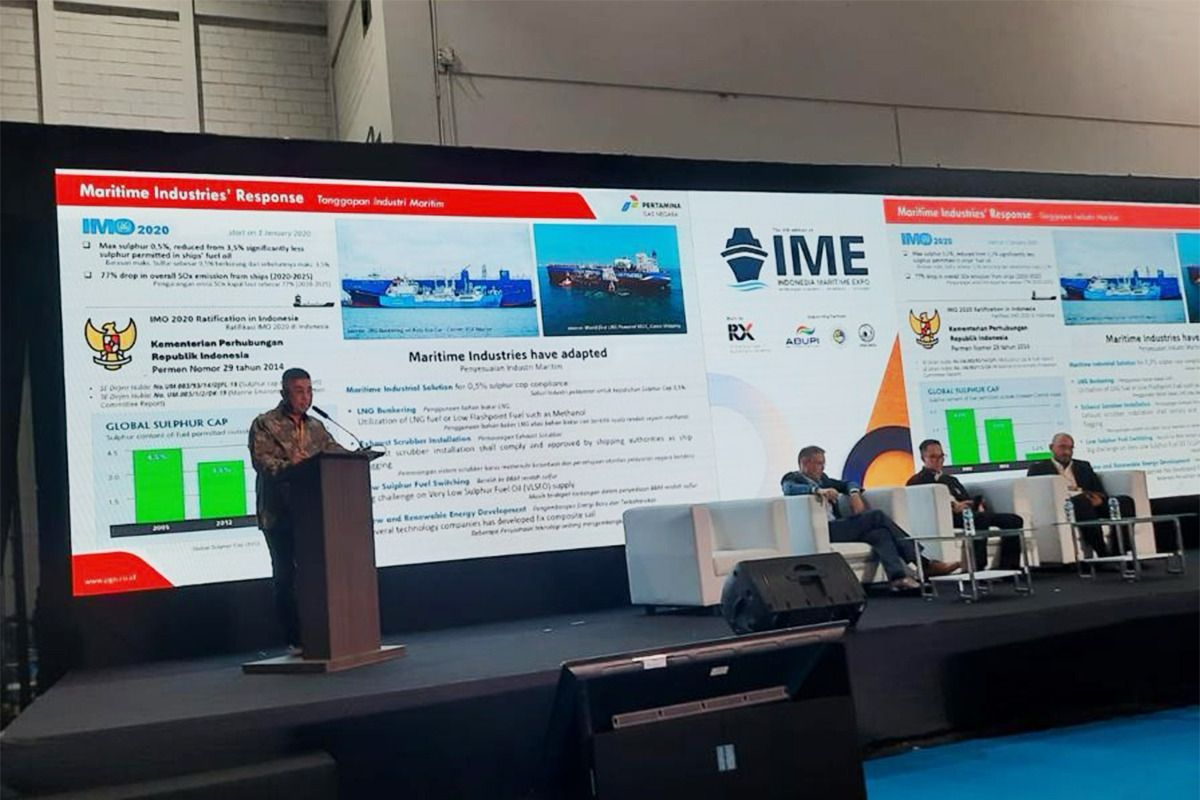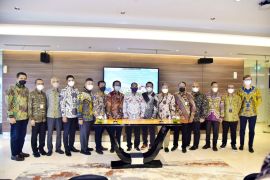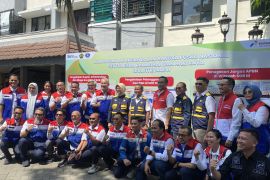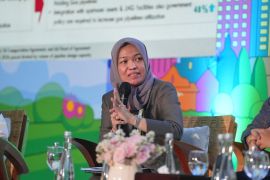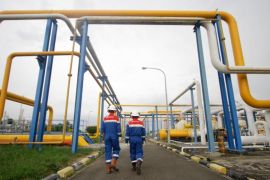Director of Infrastructure and Technology of PGN Achmad Muchtasyar noted in his statement in Jakarta, Friday, that LNG is fossil energy that has huge potential to be utilized as environmentally friendly fuel for ships.
"Using LNG as ship fuel can reduce greenhouse gases by up to 23 percent as compared to the current oil-based fuel," he noted in his presentation at the Indonesia Maritime Expo 2023 in Jakarta, Wednesday (Oct 18).
Hence, he noted that PGN, as the largest natural gas business entity in Indonesia, is preparing itself to provide LNG bunkering service.
Muchtasyar revealed that his side is currently working on strategic initiatives related to LNG bunkering services, which is LNG bunkering terminals and LNG bunkering vessels.
LNG bunkering terminals have been designed since July 2022 with a shore-to-ship bunkering scheme. The terminals that have the potential to be developed for the initiative are the Bontang LNG Terminal and Arun LNG Terminal.
LNG bunkering vessels implement a ship-to-ship bunkering scheme. The initiative, which was designed in December 2022, has the potential to be developed at several ports in Batam, Tanjung Priok-Cilegon, Tanjung Perak, Bali-West Nusa Tenggara, Makassar-East Kalimantan, and Bintuni Bay.
"Currently, LNG is the best choice as an alternative fuel for ships in order to reduce emissions. Apart from that, there is the availability of LNG infrastructure in Bontang that is located on the ALKI II route, which crosses the Lombok Strait to the Makassar Strait. This route is more efficient for shipping from Australia to East Asia and vice versa. The key success factor for providing LNG bunkering is the role of all stakeholders in creating a shared commitment," Muchtasyar stated.
The Indonesian archipelagic sea lane (ALKI) is a lane established to connect the Indian and Pacific Oceans.
The route is determined for the implementation of the archipelagic sea lane based on international law conversion. All foreign ships and aircraft traveling north or south must pass through ALKI.
ALKI is divided into three, that is ALKI I, ALKI II, and ALKI III. ALKI II is the shortest international shipping route between Australia and the Asia Pacific, so it is around 17 percent more efficient.
The condition is an enabler for the LNG bunkering initiative at the Bontang LNG Terminal as a potential alternative in the Malacca Strait.
"Given the existing opportunities for LNG bunkering services, the synergy of all stakeholders is essential. (It is) not limited to the supply of LNG and its infrastructure but also related to engine and fuel conversion on ships, certificates of compliance, legal and permits, as well as to policies from the government that are supportive of LNG bunkering services," Muchtasyar elaborated.
Muchtasyar remarked that apart from adding to its business portfolio, PGN upholds the added value of LNG as an environmentally friendly energy alternative for marine fuel.
"More than 85 percent of the composition of LNG is methane (CH4), which has the lowest carbon (footprint). Hence, LNG bunkering services are expected to increase the use of natural gas towards achieving the 2060 NZE target and facing climate change," he explained.
Related news: Energy transition important for mitigating climate change: ministry
Related news: Ministry accelerates industrial NZE target by reducing waste, emission
Related news: Indonesia pursues GHG emission reduction of 358 million tons in 2030
Translator: Kelik Dewanto, Cindy Frishanti Octavia
Editor: Azis Kurmala
Copyright © ANTARA 2023
